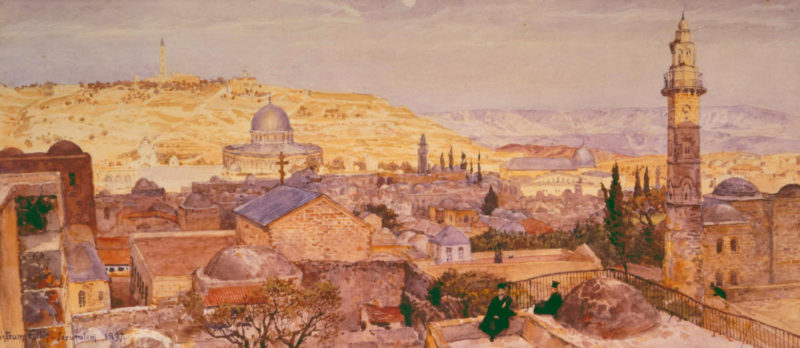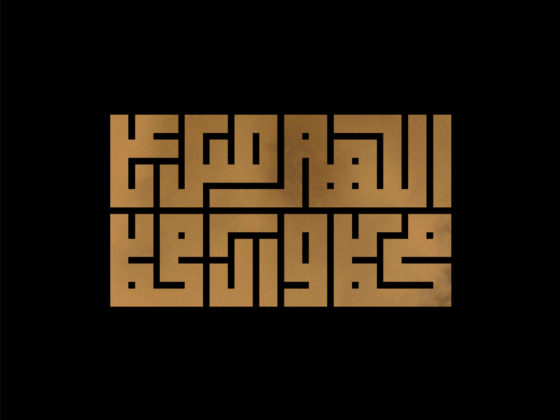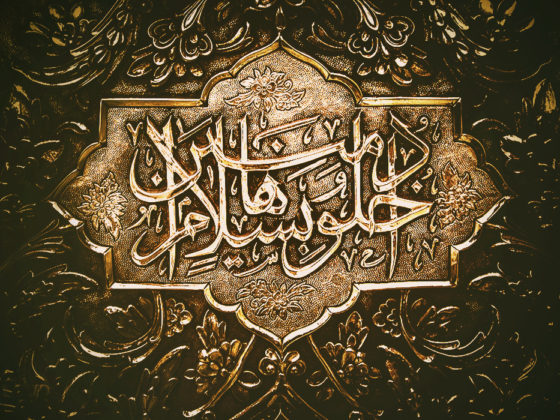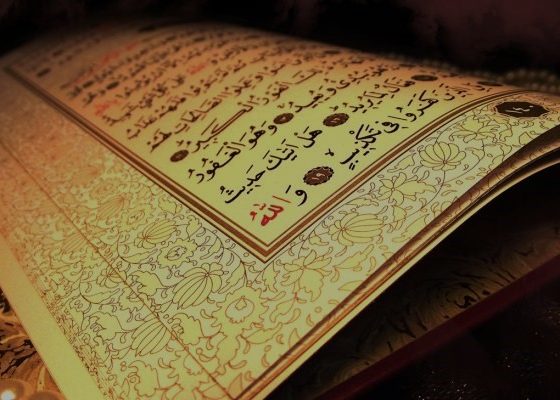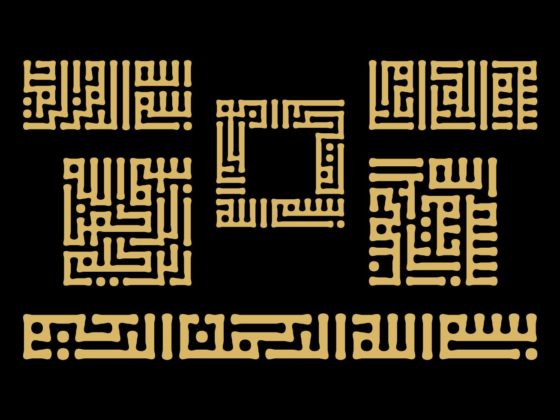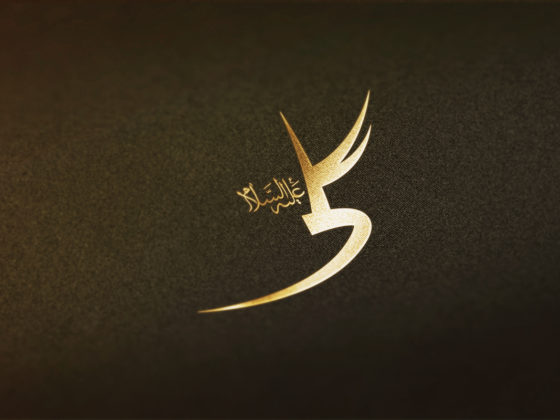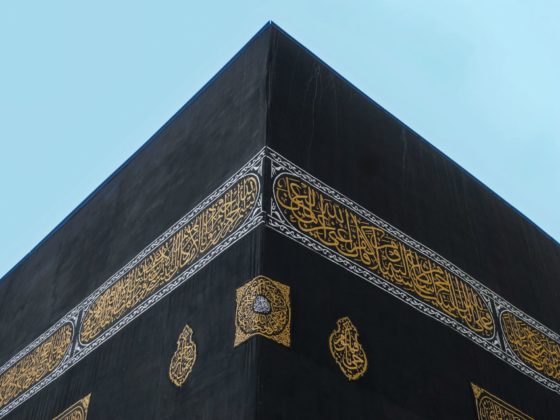Shia Muslims believe that Allah has granted Ahl al-Bayt (A) the power to rule over the entire universe. Every part of creation is under their control by the will of Allah and with His permission. This idea is called “wilayat takweeni” (“existential wilayat”). We wrote about it in this article and recommend it to anyone who wants to learn more about the topic.
The opponents of Shia (Wahhabis) are trying to sow doubts in this indisputable belief, confirmed by the Quran and Sunnah, cite the following verse of the Quran:
“And We tested Sulayman and threw a body on his throne, then he repented. He said: “My Lord! Forgive me and grant me such power as no one after me should have. Indeed, You are the Giver” Then We subjected to him the wind, which blew wherever he wished, and the devils – all the builders, divers and others bound with chains” (38: 34-38).
The Wahhabis write:
“According to this verse, the Prophet Suleiman, peace be upon him, was granted such power that no one else will be granted. The Almighty does not say that He gave him power over the universe so that when he said “Be!” it would come true. No, the best power that people ever had — the power of the Prophet Suleiman — did not contain even a fraction of what the Rafidites attribute to their Imams”.
Suleiman could control the wind, speak the languages of animals, and Allah subjugated the devils to him. This is the best power that ever existed among the descendants of Adam, and only Suleiman was granted it, but even he could not control all that exists and did not satisfy the needs of people after his death, as the Shiite Imams allegedly do according to the logic of the Rafidites.”
Now we will show that such an understanding of this verse, firstly, is a false interpretation of the Holy Quran, and secondly, contains elements of kufr.
Imam Kazim (A) was asked: “Are the prophets of Allah allowed to be stingy?”
He said: “No”
Then he was asked: “Why did Suleiman say: “Lord! Forgive me and grant me such power that no one after me should have”? What is the meaning of these words?”
He said: “There are two types of authority: authority that is acquired through conquest, violence, and coercion of people, and authority received from Allah… Allah subdued the wind for Solomon, whose morning journey was a month, and its evening journey was a month, and subjugated the devils — all kinds of builders, divers, and taught him the language of the birds, and established him on the earth, so that the people of his time and after him would know that his authority is not like the authority of those rulers who were chosen by people (and not by Allah) or acquired it through conquest and violence”
Then he said: “By Allah, we have been given what was given to Solomon, and what was not given to Solomon, and what was not given to any of the prophets.
Allah said about Solomon: “This is Our gift: bestow or withhold without calculation.”And about Muhammad (S) He said: “Whatever the Prophet has given you, take it, and whatever he has forbidden you, refrain from it.”
(“Maani l-akhbar” by Saduq, p. 100; “Ilal” by Saduq, p. 34).
In other words, when Suleiman said “Grant me such power as no one after me should have,” he wasn’t referring to the greatness of power, but rather to its uniqueness. Suleiman asked the Lord for a sign of his prophethood that others do not possess.
The word “baad” in this context doesn’t mean “after,” but “except.” The correct translation of the verse is: “Grant me such power that no one but me should have.” The “those who are besides him” are earthly rulers and kings who were not established by Allah and who gained their power through people’s choice or violence. They are not prophets and successors (peace be upon them).
Suleiman says, “Grant me such power as a sign of my prophethood as no ordinary earthly ruler has, because it does not befit them.” It “does not befit” them because controlling natural forces, jinn, and shaitans leads ordinary people to pride, tyranny, and claims to divinity. Such authority is only for Suleiman and those prophets and successors who, like him, are blameless and cleansed of sins.
These words of Suleiman (A) have nothing to do with the greatness of authority. It’s like saying to someone, “Give me an edition of the Quran that is not befitting of anyone else.” What is meant here is that it will be a special edition, with unique decorations and a seal, which others do not have — not the “best” or the “greatest” edition, but precisely one that others do not have.
In short, Suleiman asked Allah for an unusual, miraculous power that no other earthly ruler had, as a sign of his prophethood. Allah responded to his request: “Then We subjected to him the wind, which blew at his command wherever he wished, and the shaitans — all kinds of builders, divers, and others bound with chains.” This was not the “greatest” or the “best” power that no other creation of Allah will have after Suleiman (A) — it was an amazing power that, through extraordinary phenomena and miracles, distinguished Suleiman (A) from the ordinary earthly rulers who rule people through deception or violence, and thus became a sign of the authenticity of his prophethood. This does not in the least deny the fact that Allah could have given the prophets and successors after Suleiman (A) incomparably more than what He gave him. It’s also important to note that Suleiman (A) asked for this power not for its own sake, but to confirm his prophecy.
The Quran clearly states that the “greatest” power is not the power of Suleiman (A), but of Ahl al-Bayt (A): “And We gave the family of Ibrahim the Book and wisdom, and We gave them great power” (4:54). In this verse, the same word “mulk” (“power”) is used as in the verse about Suleiman, and the “family of Ibrahim” here is Muhammad and the family of Muhammad (peace be upon them), according to tafsir. Allah called their power “great,” while this word is not used in relation to the power of Suleiman (A).
On the contrary, Suleiman speaks about his power:
و أوتینا من کل شیء
“And it is given unto Us of all things” (27:16).
“Min” (“from”) here means “part”, that is, Suleiman is given only limited knowledge or power over things. Whereas about the knowledge of Imam Ali (A) it is said:
“And We have counted every thing in the manifest Imam” (36:12).
و کُلَّ شیءٍ احصَیْناهُ فی إمامٍ مُبینٍ
Here it is not said: “from every thing”, but: “every thing”. That is, knowledge of every thing on earth and in heaven is given to the Imam.
Similarly, the knowledge of Asif Ibn Barkhiya, a companion of Sulayman, is contrasted in the Quran with the knowledge of the Imams from the progeny of the Prophet (S):
“He who had knowledge of the Book (here the same word “min” is used, that is: knowledge of a part of the Book) said: I will bring it (the throne of Queen Balkhis) to you (Sulaiman) in the twinkling of an eye” (27:40)
Imam Sadiq (A) says:
“Do you know what his knowledge of a part of the Book was?”
I said: “Inform me, so that I may be your sacrifice!”
He said: “Like a drop of water in a green sea”
Then he said: “O Sadiq, have you seen in the Book of Allah, may He be glorified and exalted, this verse:
“Say:’ Allah is sufficient as a witness between me and you, and as one who has knowledge of the Book!”” (13:43)?”.
I said: “I read it.”
He said, ” Who knows more: the one who has knowledge of a part of the Book, or the one who has knowledge of the whole Book?”
I said: “One who has knowledge of the entire Book.”
He said ,” By Allaah, the knowledge of the whole Book is with us, by Allaah, the knowledge of the whole Book is with us.”
(“Usul kafi”, vol. 1, p. 257).
And the knowledge of the whole Book is nothing but the knowledge of all things, because Allah says:
“And We have sent down to you a Book that explains all things” (16: 89);
“We didn’t miss a single thing in the Book” (6: 38).
So, the greatest authority and the greatest knowledge are with Ahl al-Bayt (A). All this is summed up in the following verse:
“Your wali is Allah, His Messenger, and those who believe, who establish prayer, and give zakah while bowing down (i.e. Imam Ali and his descendants)” (5:55).
If we think about this verse, we will see that the word “wali” (leader, master) is used in the singular, and the holders of wilayah (leadership) are in the plural. This verse mentions ONE wilayah and SEVERAL of its holders. It follows from this that the wilayah of Allah is the same wilayah of the Messenger (S) and the Imams (A). Another way to express it is that for the creation, the wilayah of Allah is manifested through the wilayah of the fourteen Immaculate (A). It is not as if we have several walis at the same time. In reality, the only walis is Allah, and the Prophet (S) and the Imams (A) are manifestations or signs of the wilayah of Allah.
Thus, in this verse, Allah has connected their wilayah (guidance) with His wilayah, which He did not do for any of the other prophets or successors.
Interpreting the words of Sulayman (A) in the sense in which the Wahhabis do it is not only ignorance, but also kufr, because, firstly, it ascribes greed and pride to the prophet, and secondly, it places him above Muhammad (S).
In the Sunni tafsirs of Tabari and Bagawi, we found an interpretation of this verse that is more or less close to the correct one.
In the Tafsir of Tabari it is said:
لا يسلبنيه أحد كما سلبنيه قبل هذه الشيطان
وهب لي ملكا لا ينبغي لأحد من بعدي
“Grant me a power that does not belong to anyone after me” – this means: “Such power that no one will take it away from me after this, as Shaitan took it away from me before (that is, in the story of the body).”
http://library.islamweb.net/newlibrary/display_book.php?flag=1&bk_no=50&surano=38&ayano=35
Read from Baghavi’s:
قال عطاء بن أبي رباح : يريد هب لي ملكا لا تسلبنيه في آخر عمري وتعطه غيري
“Grant me a power that is not due to anyone after me” – this means: grant me a power that no one will take away from me at the end of my life, and You will not give it to another.
http://library.islamweb.net/newlibrary/display_book.php?flag=1&bk_no=51&surano=38&ayano=35
As for the “hadiths” mentioned in some other Ahlu Sunnah tafsirs that say that Sulayman’s authority was actually higher than that of Muhammad (S), these are clearly Kufr and Israiliyat (Jewish influence), and their narrators include Jews like Abu Hurayrah. In general, Sunni “hadiths” about the prophets are often filled with Jewish inventions and influences of distorted Torah, transmitted through such personalities as Kaab ibn Akhbar or the same Abu Hurayrah.
